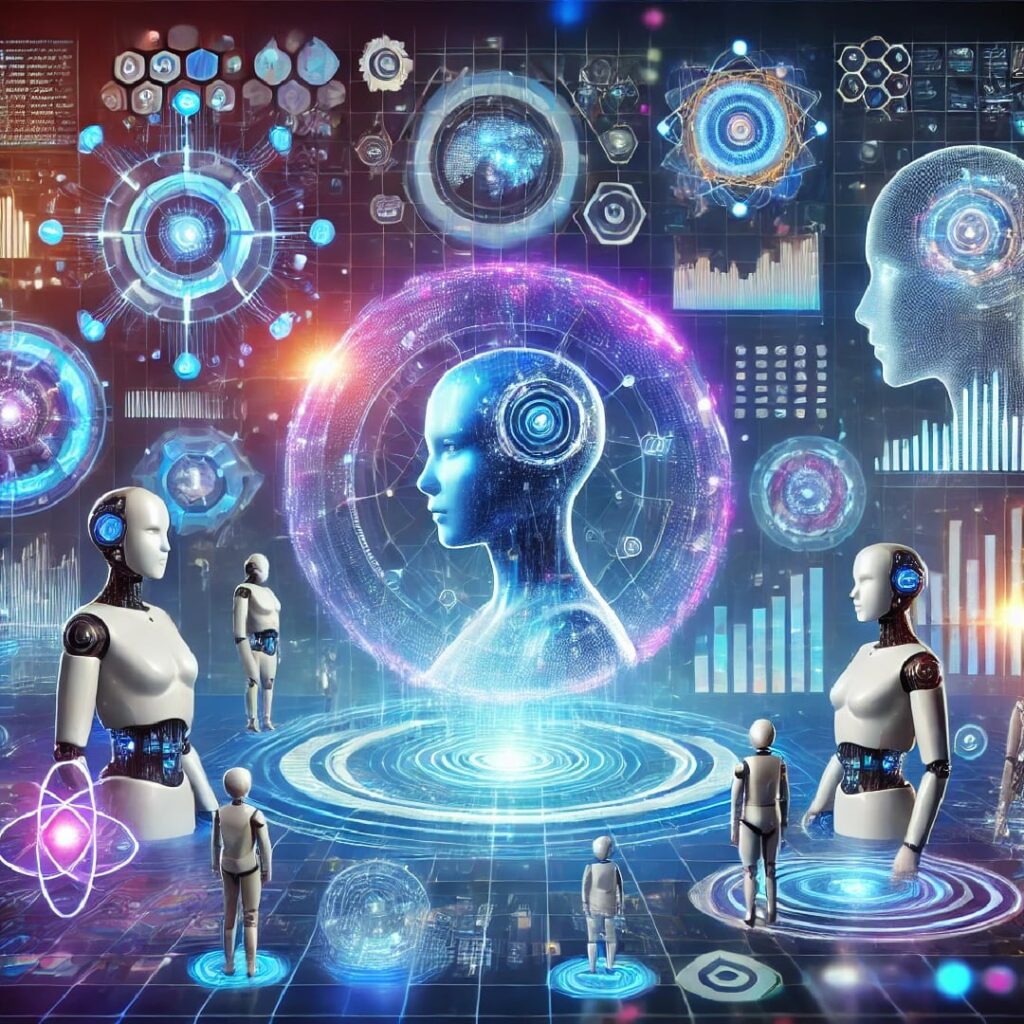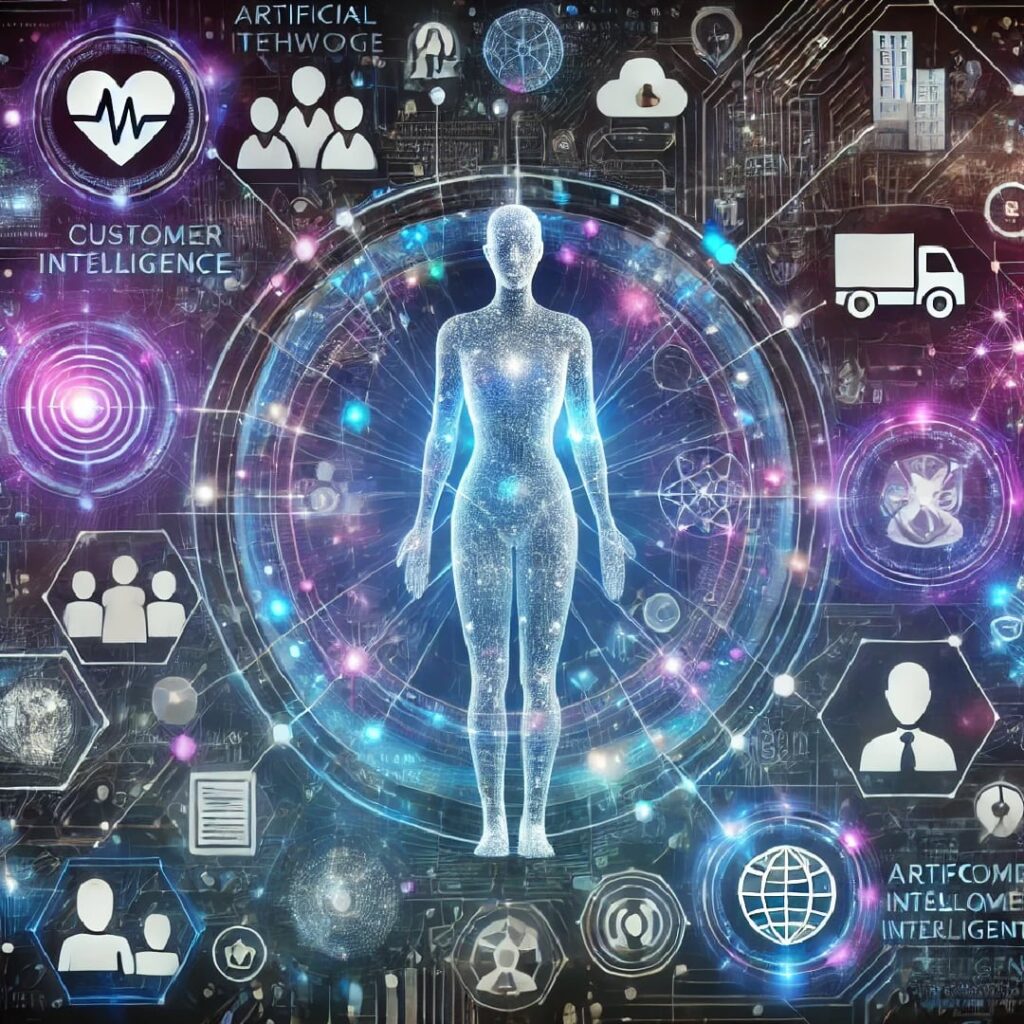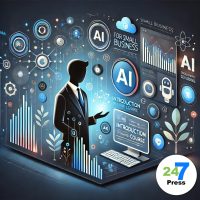In recent years, artificial intelligence (AI) has rapidly transformed industries, reshaping how businesses and individuals interact with technology. One of the most exciting and impactful developments in this space is the rise of artificial intelligent agents. These AI-driven systems have evolved from mere digital assistants to powerful tools capable of executing complex tasks autonomously. In this article, we’ll dive deep into what artificial intelligent agents are, how they work, and their potential to revolutionize everything from customer service to autonomous decision-making.
What Are Artificial Intelligent Agents?
At its core, an artificial intelligent agent is a piece of software designed to perform specific tasks by observing its environment and taking action based on the input it receives. The agent can sense data, process it, and then take appropriate steps to achieve a desired outcome. What sets these agents apart from traditional software is their ability to learn, adapt, and respond to dynamic environments.
Unlike static programs that follow a predefined set of instructions, artificial intelligent agents possess the ability to analyze data, make decisions, and even improve their own performance over time. This makes them incredibly useful for solving complex problems or automating processes that would be too time-consuming or difficult for humans to handle manually.

Types of Artificial Intelligent Agents
Artificial intelligence agents come in various forms, each suited to different tasks. Broadly, they can be categorized into the following types:
1. Simple Reflex Agents
These are the most basic form of AI agents. They make decisions based purely on the current situation and predefined rules. For instance, a thermostat that adjusts the temperature based on readings from a sensor could be considered a simple reflex agent.
2. Model-Based Agents
Model-based agents take it a step further by considering their past actions and how those influenced the environment. This allows them to make more informed decisions. These agents build an internal model of their environment and predict outcomes based on their actions.
3. Goal-Based Agents
Goal-based agents operate with specific objectives in mind. Rather than just reacting to inputs, they evaluate their actions based on how well those actions help achieve a particular goal. For example, a robot vacuum cleaner may prioritize covering areas of a room that are dirtier to meet its goal of keeping the space clean.
4. Utility-Based Agents
Utility-based agents not only work towards a goal but also consider the best possible outcome. They evaluate different actions based on how “useful” or optimal they are for achieving their goal, factoring in elements like time, energy, and cost efficiency.
Transform your business by leveraging our AI Tools for Business to automate processes, optimize workflows, and enhance decision-making. Discover how our cutting-edge solutions can streamline operations and drive growth.
5. Learning Agents
Learning agents are perhaps the most advanced form of artificial intelligent agents. They have the ability to learn from their environment and experiences, improving their decision-making capabilities over time. These agents use techniques like machine learning to refine their approach as they accumulate more data.

How Artificial Intelligent Agents Work
The inner workings of AI agents involve several complex processes. Here’s a breakdown of the main components that allow an artificial intelligence agent to function:
1. Perception
The first step for any AI agent is to perceive the environment. This typically involves gathering data through sensors, inputs, or APIs that provide real-time information. For example, in a self-driving car, the sensors collect data about the road, obstacles, traffic signals, and other vehicles.
2. Processing and Understanding
Once the data is collected, the agent processes it to understand the situation. This often involves machine learning algorithms or deep learning models that can analyze vast amounts of information. The agent must make sense of the data, recognize patterns, and understand how different factors are related.
3. Decision-Making
After analyzing the environment, the agent makes a decision based on its programmed objectives or learned goals. In this stage, an AI agent evaluates possible actions and selects the one that is most likely to yield the desired outcome.
4. Action
Finally, the AI agent takes action. This could be anything from making a recommendation to executing a task autonomously. For instance, a chatbot (a common example of an AI agent) may answer a customer’s query or a robot may move to a new location.
5. Learning
For learning agents, the process doesn’t stop after an action is taken. These agents continuously evaluate their performance and outcomes, using the results to improve future actions. This feedback loop is crucial for agents that need to adapt in real-time to changing environments.
Applications of Artificial Intelligence Agents
Artificial intelligence agents are transforming a wide range of industries. Below are some notable applications that showcase their versatility:
1. Customer Service and Support
AI agents are becoming increasingly common in customer service, with chatbots and virtual assistants providing round-the-clock support. These agents can handle a wide range of tasks, from answering basic questions to troubleshooting more complex issues. By learning from previous interactions, AI agents can continuously improve their responses, offering better customer experiences over time.
2. Healthcare
In the healthcare industry, AI agents are being used to assist with everything from diagnosing diseases to providing personalized treatment recommendations. For example, AI-powered diagnostic tools can analyze medical images or patient data to help doctors make more accurate diagnoses. Agents in healthcare can also monitor patient data in real-time, alerting medical professionals to potential issues before they become critical.
3. Autonomous Vehicles
Self-driving cars are a prime example of artificial intelligent agents in action. These vehicles use AI agents to navigate roads, avoid obstacles, and make real-time decisions about speed, direction, and safety. By continuously learning from their environment, these agents can adapt to new situations, such as changes in traffic patterns or weather conditions.
4. Financial Services
AI agents are revolutionizing the financial industry by automating processes such as fraud detection, trading, and customer service. For instance, AI-driven trading algorithms can analyze market data and execute trades at lightning speed, far faster than any human trader. Similarly, fraud detection systems powered by AI agents can scan millions of transactions in real-time to flag suspicious activity.
5. Personal Assistants
Virtual assistants like Siri, Alexa, and Google Assistant are among the most familiar examples of AI agents. These assistants can help users with a variety of tasks, from setting reminders to answering questions, all by understanding and responding to voice commands. As these agents become more sophisticated, they’ll be able to handle increasingly complex requests.
The Future of Artificial Intelligent Agents
The potential for artificial intelligent agents is immense. As AI technology continues to evolve, we’re likely to see even more sophisticated agents capable of taking on a wider range of tasks. One area that holds significant promise is the development of general-purpose AI agents—agents that can perform multiple, unrelated tasks and adapt to different environments.
Additionally, as AI agents become more integrated into our daily lives, ethical considerations will need to be addressed. Issues like data privacy, accountability, and the potential for bias in decision-making will become increasingly important as these systems take on more responsibility. Read my article on artificial intelligence ethics on Medium.
The rise of artificial intelligent agents marks a major leap forward in how we interact with technology. From customer service bots to autonomous vehicles, these agents are reshaping industries and changing the way we live and work. While we’re still in the early stages of fully realizing their potential, there’s no doubt that AI agents will play a crucial role in the future of innovation.
Whether it’s through automation, personalization, or decision-making, artificial intelligent agents are proving to be valuable tools that can enhance efficiency, improve outcomes, and help solve complex problems. As they continue to evolve, the question isn’t whether they’ll be a part of the future—it’s how big of a role they’ll play. For more on AI’s next step, read this article on Artificial General Intelligence.
Like this article? Please read my other blog post on Harnessing the Power of an AI Blog Writer.





